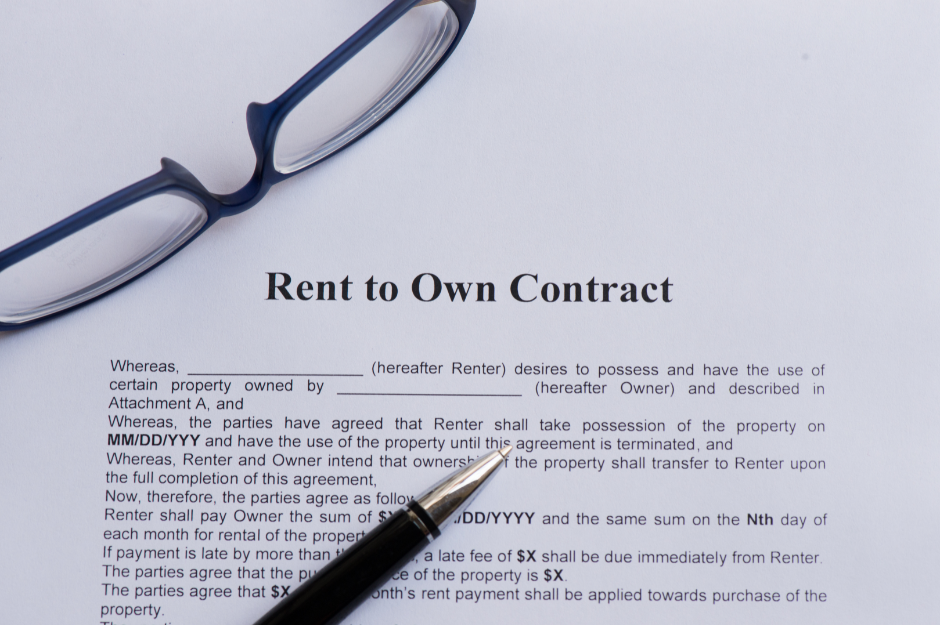
Insider: How Blackstone-owned Home Partners of America “Sets Tenants Up to Fail”
August 14, 2023
Rent-to-own programs have emerged as a seemingly promising option for people who face financial constraints when trying to buy a home. However, a recent article published on Insider.com sheds light on the difficult experiences faced by tenants of Home Partners of America, a prominent rent-to-own company owned by the private equity giant Blackstone. In the article, Insider reveals how tenants of Home Partners of America’s rent-to-own programs often face overwhelming financial burdens, unaffordable home prices, limited options, and inadequate support, hindering their ability to achieve successful homeownership.
Blackstone purchased Home Partners, which now owns over 28,000 properties, for $6 billion in 2021. Since purchasing the company, Blackstone has followed the classic private equity model: maximize profits and minimize costs, often at tenants’ expense.
Insider, July 7, 2023: “Private equity sold them a dream of home ownership. They got evicted instead,” Insider
Rent-to-own programs are marketed as a viable solution for aspiring homeowners who may not meet the requirements for traditional mortgages due to financial limitations such as poor credit. These programs typically allow tenants to rent a home with the option to purchase it in the future, ostensibly offering an opportunity to save money and enhance their financial situation before becoming homeowners.
According to Insider, “An analysis of contracts and sales and eviction data shows that rent-to-own tenants are often left with the worst of all worlds. They have to shoulder many of the costs and responsibilities of homeownership, and the financial odds are stacked against them to end up as owners. Meanwhile, many are paying above-market rent.”
A high percentage of Home Partners rent-to-own participants fail to achieve homeownership. A study from Moody’s found that among renters who moved into their homes in 2020, 513 had purchased their homes by the end of 2021, while 843 moved out without buying. However, the count of 513 may have also included renters who reached the end of their first loan term, but were unwilling or unable to buy.
Several critical factors contribute to this lack of success, exposing the inherent flaws of the rent-to-own model.
Financial Struggles:
Foremost among the challenges faced by tenants is the overwhelming financial burden imposed by Home Partners. For one, these initiatives often require upfront fees or additional monthly payments designated as future down payments. In some cases, tenants move into homes with major repair issues, only to be told that they themselves are required to foot the bill. For individuals with limited income or financial instability, meeting these financial obligations can prove insurmountable, leading to a vicious cycle of perpetually paying for fees and repairs without any realistic prospects of owning a home.
This is especially troublesome when tenants are unable to make rent. One tenant recounted how she was locked out of the company’s payment portal after falling only one month behind on rent, only for Home Partners to swiftly file for eviction the following month. While the federal COVID eviction moratorium kept this tenant from being displaced from her home, Home Partners continued to threaten her via phone with the removal of her belongings, and kept her security deposit. These issues are systemic. In one county, Home Partners filed to evict more than half of its 430 properties between September 2020 and the end of 2021.
Escalating Home Prices:
Another significant drawback arises from the relentless surge in home prices experienced across many regions. Tenants in rent-to-own programs are vulnerable to market forces, which can result in inflated purchase prices. In some cities, this markup is as high as 43%. Insufficient Education and Support:
An additional concern is the inadequate education and support provided to tenants throughout the rent-to-own process. Financial management, credit score improvement, and a comprehensive understanding of the home buying process are essential to purchaser success. Without proper support, tenants are left to navigate the intricate path to homeownership on their own, significantly diminishing their prospects of a successful transition.
This is an equity issue. Black and Hispanic households are statistically more likely than white households to utilize mortgage alternatives. Models like these have deep historical roots; mortgage lending discrimination known as redlining often forced racialized people to tenuously buy homes “on contract”, only handing over the title on the rare occasion that the property actually becomes paid off.
While rent-to-own programs may appear as an attractive option, the investigation into Home Partners’ low success rate uncovers the undeniable downsides and challenges experienced by its tenants. Financial struggles, rising home prices, limited options, and insufficient support all contribute to a system that fails to deliver on its promises. All the while, Blackstone rakes in profits. So far, regulatory structures have not sufficiently adapted to counter the potential for exploitation within the rent-to-own model.
Policymakers and industry stakeholders should take heed of the issues raised in this article, striving to address the shortcomings and create a more equitable and tenant-centric approach.
